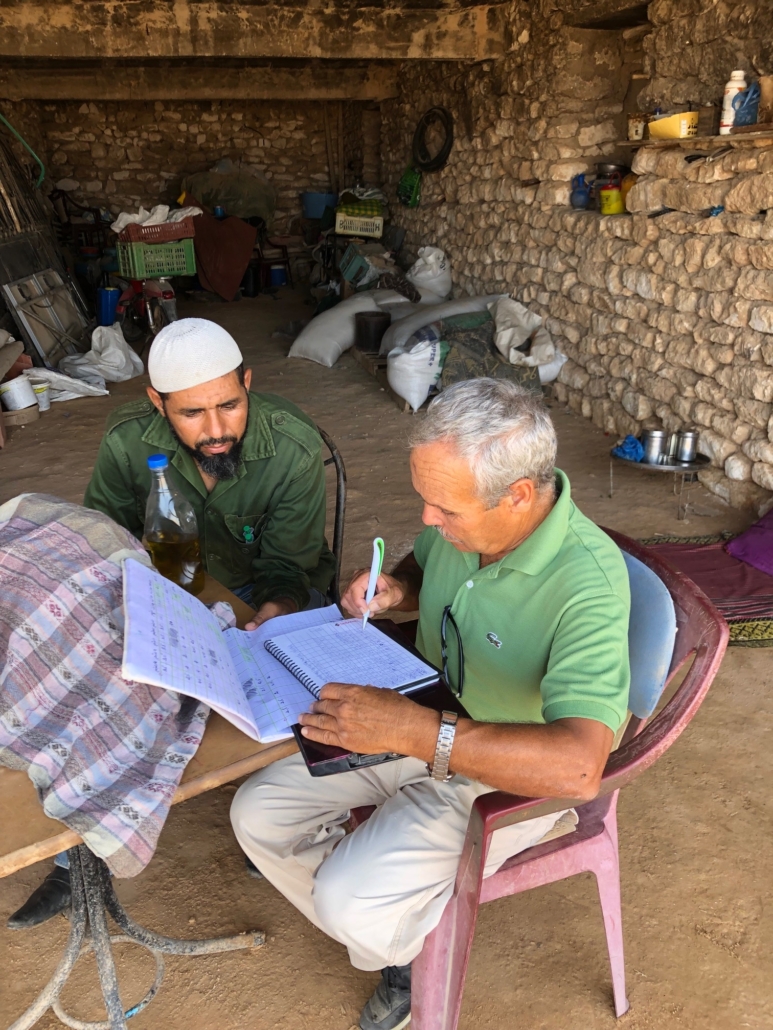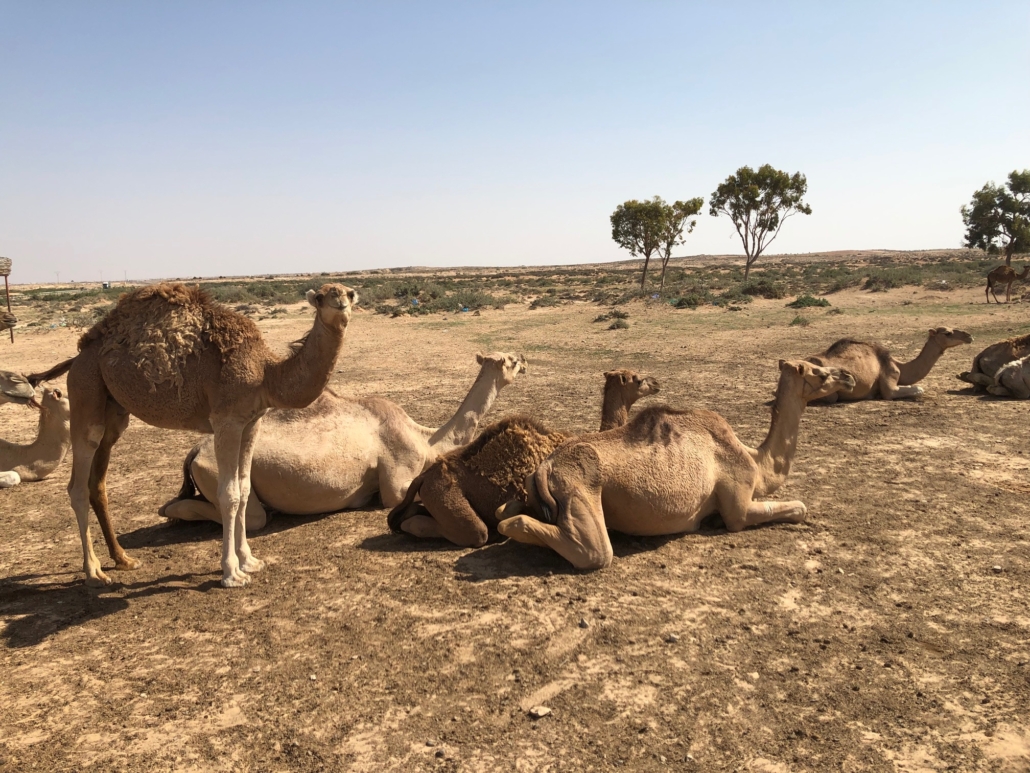In 2017, a few farmers from SMSA Zed Elkhir (mutual society of agricultural services – cooperative type) and the SMSA itself started a pilot experiment on “camel milk”: organize joint camel care, milk camels in lactation and sell the milk. This experience attracted Prodefil, an IFAD-funded sector support programme coordinated by the CRDA, which decided to support the SMSA in this experiment. Difficulties in awarding contracts delayed the support, but 50 lactating camels were provided between May and September 2019 to 5 beneficiary farmers, and the construction of the collection center that will be used by the SMSA should be completed by the end of 2019.
Fert assisted the SMSA during its pilot experiment in 2017 and has continued its support in 2018 and 2019, particularly in terms of training and technical support provision to farmers who initiated the dairy production.
In September 2019, a mission of Laurent Roy from DEFIS department of IRC-Montpellier SupAgro was also organized to support the SMSA in the organization of its collection service: it was meant to address the level of breeders and their post milking management, as well as the operation system of the center and milk marketing.
He testifies: “This mission raised many questions that had not yet been considered by farmers and SMSA’s leaders.
Beyond the organization of the collection center and the choices to be made regarding collection methods, …, the SMSA must also consider its support system for the development of dairy production. Let me explain: in 2019, 5 farmers received 10 dairy camels each, benefited from training for dairy herd management, milking, etc. What will be done in 2020, taking, as well, into account the fact that these camels will only produce again in 2021 …? Moreover, in the absence of a running collection center, these farmers had to put together, from 2019 onwards, to sell the milk they produced. While building the collection service, the SMSA must therefore be careful about the advantages to provide, over pre-existing marketing channels, and secure the viability of the collection center, particularly financially.
These are just some of the issues raised during the mission. SMSA must now develop its business plan, reflect on its support plan, monitor the work of the collection center, ensure good partnership conditions with the CRDA regarding the provision of the center, define specifications for the milk collected, prepare to negotiate its markets … Given these important needs and challenges, Fert, in partnership with DEFIS, will most probably continue to support them.
Obviously, there is a lot to prepare, but there are many positive elements: on one side the 5 farmers are ready to continue dairy production, SMSA will identify other farmers (and it seems that there are already some interested farmers), and on the other side, there are actors – milk processors and traders – ready to commit themselves to market camel milk because consumer demand on the market is higher than the existing supply.”




